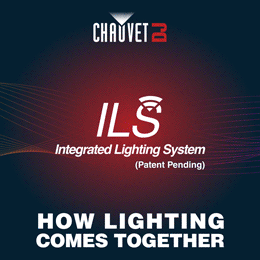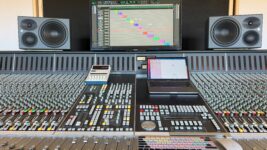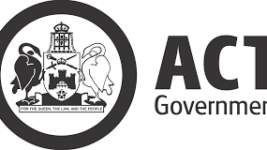Subscribe to CX E-News
Sounds Like Teen Spirit Pt 2 – Sounds more like a Can of Worms!
Computers creating music, computers driving cars. Houston, we have a problem.
Duncan Fry.
Regular readers of this column (Who they? Ed) may remember that last month’s edition discussed the imminent commercial appearance of a new musical phenomenon – the computer generated hit song. One that was written, performed, produced and distributed by a computer and then paid for by another computer – for your playlist, having thoroughly analysed your musical tastes based on what you’ve bought before.
All done without any human input at all, apart from someone switching on the computer! And that can be done automatically by a timer.
Having a bit of a contrarian mindset, the following question struck me: ‘who owns the copyright to a computer generated song?’
Hmm, a good question. And surprisingly enough I’m not the first person to ask it.
A quick internet search provided an earliest asking date of 2007, when BCS, the Chartered Institute for IT in the UK asked the question, as well the following multiple choice question: ‘Is it the music software vendor, the software user, or the software program itself?
In this case the answer provided by the presenter, David Harvey (CTO of Sibelius Software), was – the copyright belongs to the software user! Sibelius is a leading music notation program, so no surprises there! Others take the view that despite the software, the computer itself is the actual creator of the song, and, all things being equal, is entitled to all royalties the song earns.
This is the vexing question that is bothering many members of the legal profession worldwide, because the truth is, all things are NOT equal, and there will need to be a major change in Copyright laws for it to happen.
Steve Shlackman, in the artlawjournal.com, discussing a computer generated painting in the style of Rembrandt, says, ‘The Copyright Act explicitly addresses the issue of non-humans and copyright protection here: 503.03(a) Works-not originated by a human author.’
‘In order to be entitled to copyright registration, a work must be the product of human authorship. Works produced by mechanical processes or random selection without any contribution by a human author are not registrable.’
He goes on to say that we instinctively know that non-humans shouldn’t be able to hold a copyright until we have sentient artificial intelligence, because they have no way of enforcing their rights or stop others Steve is discussing art in this case, but a song is a creative work, so should we apply the same arguments or not? Are computers now becoming sentient, with the ‘capacity to feel, perceive, or experience subjectively?’ (wikipedia definition). Some people think that they are. As with many things in life, though, this may well depend on who has the money for the best lawyers!For example, David Slater, a photographer, had his camera stolen in Indonesia by a Macaque monkey back in 2013. The monkey began pressing buttons on the camera and accidentally took a series of selfies. When the camera was returned, Slater published the pictures and claimed their copyright. PETA (People for the Ethical Treatment of Animals) sued him on behalf of Naruto, the Macacque, who they claimed was the copyright owner!
The judge eventually knocked back the case, but it may become the first of many such lawsuits. Perhaps from ‘Lawyers for the Financial Benefit of Themselves.’ Next case, your Honour… Self-driving cars versus the General Population.
We hear an awful lot about self-driving cars these days, or Autonomous (definition: self-controlling) cars as they are currently known. Well, the car as an entity may be sold as self-controlling, but when you get right down to the nitty gritty it is a car controlled by a computer, instead of a person.
People with a vested interest in these cars – the car makers, for one, like to tell us that they are just around the corner. Which they might be, providing the car-makers, the law-makers, and most of all the insurance companies, can work out who is actually in control of the vehicle.
Under current laws this can only be a person, not a computer. ‘The computer crashed the car’ will not be a valid defence! Who is going to insure these cars, who is going to be the sue-able entity that can be charged with crashing the car? Microsoft? Intel? Apple? Google? I don’t think so. So many questions, and so few answers! Most likely it will end up being the person who registered the car, since until the law changes, that can only be done by a person, not a computer.
So the registree of the car is going to end up as the person at fault, even if they have been quite legally lounging in their seat reading the paper, having had nothing to do with the car’s actual driving. How on earth are they going to get insurance to cover this? And how much will it cost?
To the best of my knowledge I haven’t seen or heard any discussion of these points, even though they go to the very heart of the self-driving concept. Self-aware computers are on their way at a great rate of knots, but there is a huge difference between having a computer write a song and having one drive you around at up to 100 kilometres an hour!
If this doesn’t have fuckup written all over it I don’t know what has! This whole can of worms has the possibility of keeping several armies of lawyers busy for a whole generation or two.
Because as always, it ends up being all about the money. Who pays, who gets paid, who doesn’t and who didn’t. A circular argument that will need far better politicians and law-makers than we currently have.
Will the computer end up owning the song it has just created (probably not) or the computer owning the new Rembrandt it has just painted (probably not, also). Or the one that has just written the ‘new’ Shakespeare / Kit Marlowe play by studying the writing style of all the other plays. Hmm – maybe! Failed English Lit students may well say that it couldn’t do a worse job!
If Cedric or Cersei the Sentient Computer finally gets to own its compositions, plus singing or playing royalties, producers fees, etc. then, as Don McLean sings, then forget Buddy Holly – THIS will truly be the day the music dies.
Perhaps sometime in the future, we’ll all commute into work in our autonomous self-driving cars, listening to songs written by software programs and performed by computers. Unless of course, we work in the music biz.
Because we won’t have a job to go to!
Postscript
A far more rational and in-depth analysis of the legal issues involved in all this can be found at the following websites:
https://artlawjournal.com/the-next-rembrandt-who-holds-the-copyright-in-computer-generated-art
https://artlawjournal.com/peta-sues-over-monkey-selfie
Or, just type ‘’who owns the copyright to a computer generated song?” into any search engine and see what pops up! Be careful though. George Orwell’s Big Brother (a.k.a. Google) might be watching you!
This article first appeared in CX Magazine October 2017, pp.65-66. Read all issues with free subscription www.cxnetwork.com.au
Subscribe
Published monthly since 1991, our famous AV industry magazine is free for download or pay for print. Subscribers also receive CX News, our free weekly email with the latest industry news and jobs.












